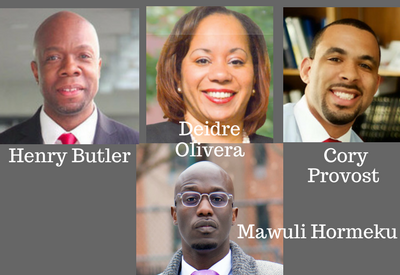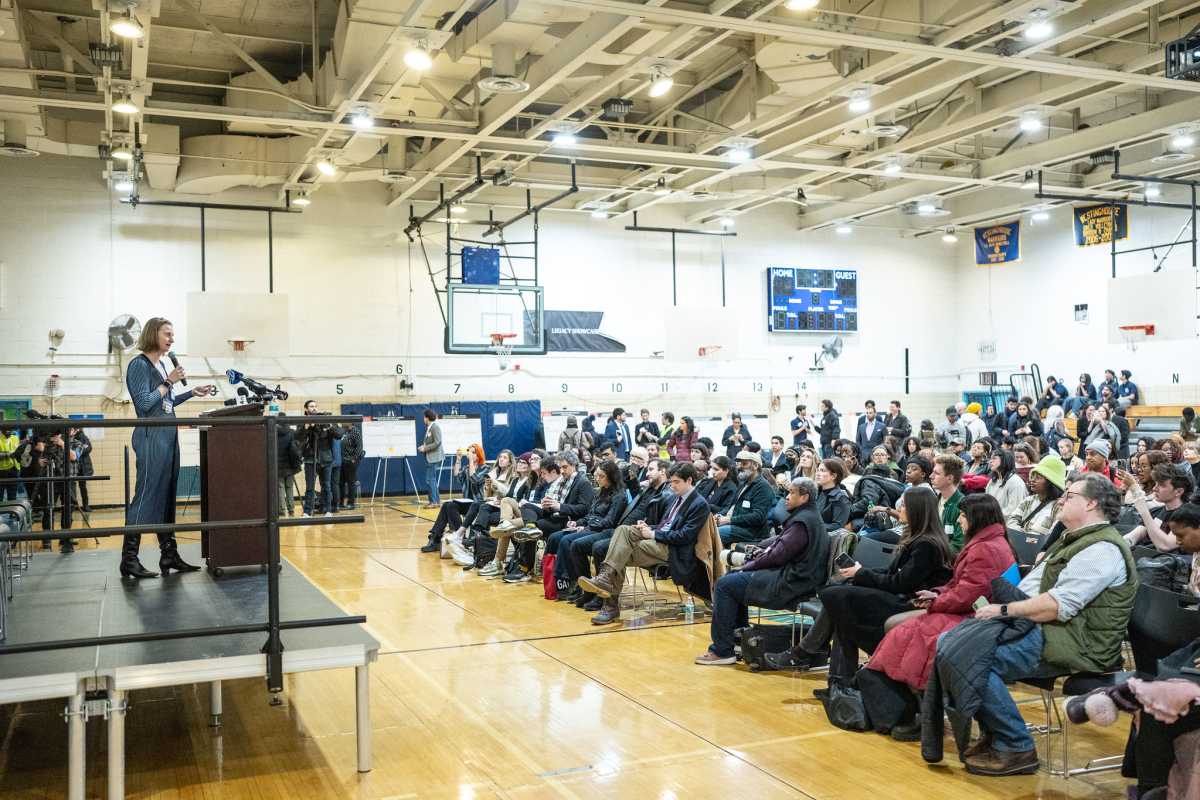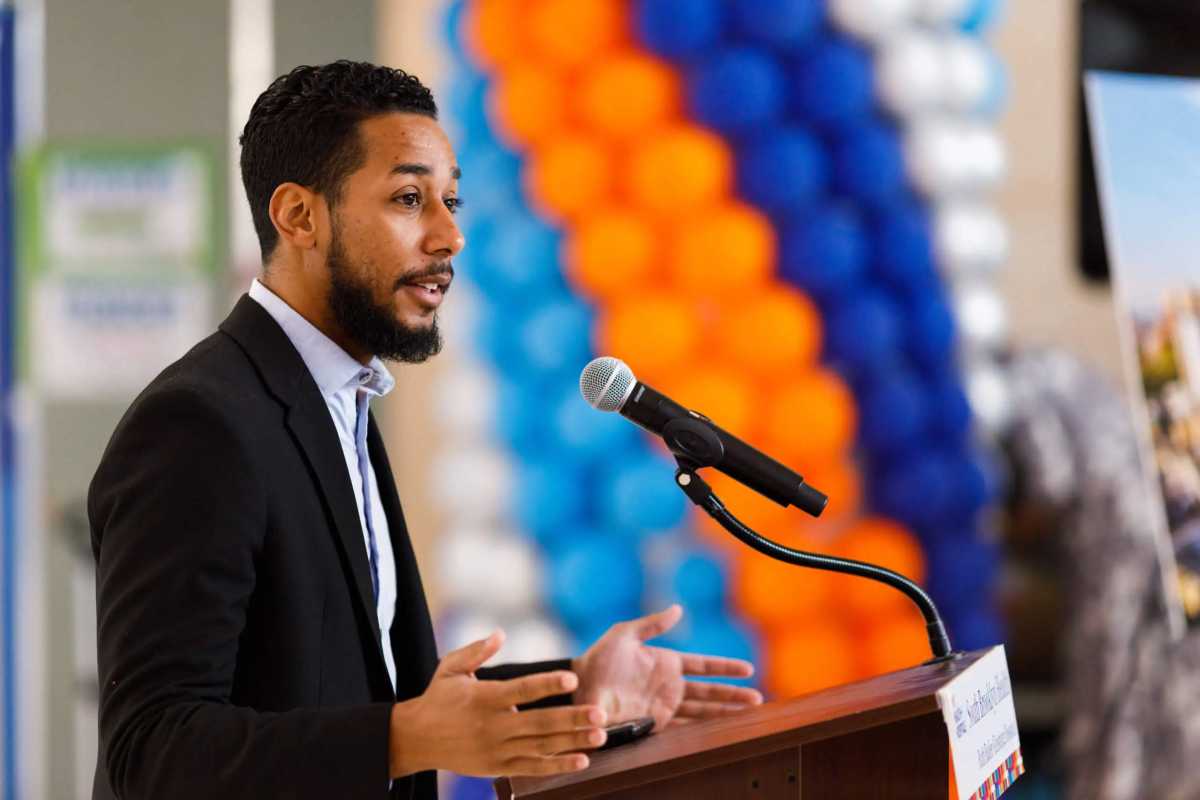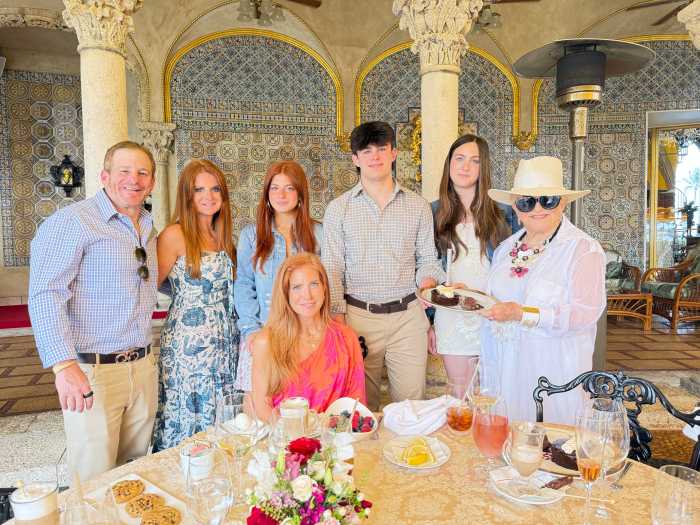KCP asked the perceived frontrunners, Henry Butler, Cory Provost, Deidre Olivera and Alicka Ampry-Samuel, in the 41st District City Council race to succeed term-limited City Council Member Darlene Mealy, as well as Mawuli Hormeku, who is running against City Council Member Inez Barron in the neighboring 42nd District what they thought of “The Brownsville Plan” that Mayor Bill de Blasio released yesterday.
The $1 billion dollar plan includes leveraging private and public investments to create 2,500 new affordable homes, new and improved cultural, recreational, and educational facilities, and business opportunities in Brownsville.
In the coming months, the city plans to issue a Brownsville Request for Proposals seeking proposals for the development of vacant City-owned land at Christopher-Glenmore, Rockaway-Chester, and Livonia Avenue that align with established neighborhood priorities. The RFP will lead to the creation of approximately 750 affordable homes, representing over $300 million of investment in the neighborhood.
In addition, the plan coordinates more than $150 million in City investments, including improvements to Brownsville’s parks, NYCHA developments, streets and roadways. It includes plans for a new community center for teens at the Brownsville Houses; and a new Neighborhood Health Action Center. Much of this work will be complete or underway within the next five years.
While a number of Brooklyn lawmakers representing the area hailed the plan, which was said to be formulated with local organizations and other stakeholders, de Blasio’s Mandatory Inclusionary Housing rezoning plan drawn up and passed in neighboring East New York has drawn a mixed reaction with some critics saying that it will lead to increasing gentrification pushing longtime residents out.
Here are the responses from those candidates surveyed on their thoughts of The Brownsville Plan:
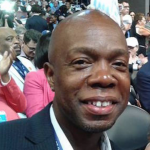
Henry Butler: “I am thoroughly pleased and encouraged by the release of the Brownsville Plan. The promise of new affordable homes, health and youth facilities, better parks and economic development, is what the residents of this great neighborhood deserve. This type of investment in a historically underserved community is exactly why I am running to represent this district. As someone with a solid track record of bringing revitalization projects to fruition, I will make sure the promise of this plan is realized and voices in the community continue to be heard once I’m elected to City Council.”
Cory Provost: “I wholeheartedly embrace and support the Brownsville Plan. Such an initiative in a part of Brooklyn that faces significant social, economic and other challenges is long overdue. I believe that this is an important first step in the revitalization and regrowth of Brownsville that has suffered from deliberate neglect by successive governments over decades. The people and residents of Brownsville were ignored, forgotten, and deprived of resources rightfully owed to them.

‘The Brownsville Plan’ is an ambitious plan. I will remain vigilant to make sure that the people are not left out of the planning and decision-making processes. I will make sure that long-standing residents and committed stakeholders are not ignored nor pushed out to make room for new, expensive developments. I will be constantly on the look after the interests of the people of Brownsville so that their qualify of life is improved through the implementation of the Brownsville Plan and not degraded and lessened as a result.”
Deidre Olivera: “I applaud Mayor Bill de Blasio and Department of Housing Preservation and Development Commissioner Maria Torres-Springer, for putting forth the Brownsville Plan which proposes a much-needed financial investment into the Brownsville community. However, as a Brownsville activist and resident, it is imperative that this plan is truly affordable for the hardworking members of our community.
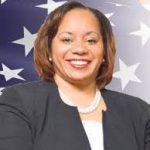
“The plan should include 100% affordable units built with unionized labor and mandatora inclusionary housing. There needs to be a more comprehensive outline constructed that provides genuine economic reinvestment that will positively affect the livelihood and quality of life for Brownsville residents. I firmly believe that compliance is a key proponent to ensure that the integrity of the plan is not compromised by real estate developers, biased stakeholders or anyone who stands to gain at the expense of the current Brownsville residents.”
Ampry-Samuel did not respond to the survey.
Mawuli Hormeku: “HPD is a great “City” organization, but does not promote true ownership in our community and I always say if you want your own community you have to own your community. It’s amazing how the City and our local elected officials manage to find innovative ways to dress up extreme poverty and displacement. You can continue to develop new buildings in an overly saturated low socio-economic neighborhoods, place beautiful parks in a community inundated with failing schools and create economic & health corridors within a place that leads the city in unemployment and the lowest life expectancy. This is essentially a recipe for disaster or preparation for others to come in.”
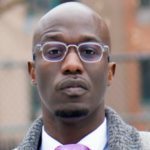
Hormeku said part of the problem in Brownsville has been a history of poor political leadership and corrupt politicians, pointing to recent felony convictions of former Assemblyman William Boyland Jr. and former State Sen. John Sampson.
“I’m tired of holding the same elected people accountable because they are part of the problem. Revamp the whole system. We need a fresh start. I was really born, raised and currently reside in Brownsville, and I have the ability to move out, but I choose to stay and transform my community. Eighty percent of the candidates are going to vanish from the community when they lose the election but not me. I’m giving out tens of thousands of dollars in scholarships every year, created jobs for the youth and keeping my residents from being displaced through ownership. There is no elected or aspiring official that has been more apart of this HPD Brownsville neighborhood process than me.
“The residents of Brownsville particularly the Nehemiah homeowners & young progressives who want to invest in their community didn’t approve of this plan. However, I have faith there is still time to save our community but it’s going require someone who is fearless and willing to go above and beyond to change the narrative of Brownsville before it becomes historically black.”


